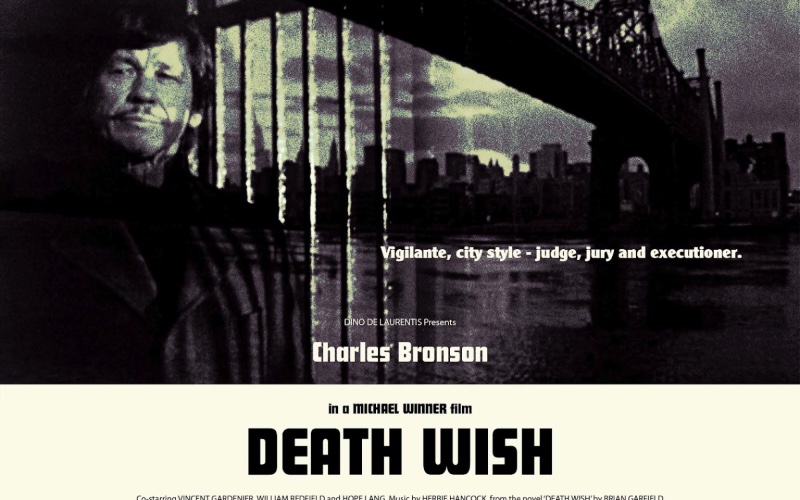

Based on a 1972 novel of the same name, Michael Winner’s 1974 movie met with a pretty high degree of disapproval on release.
I’ve long wanted to see it, very largely due to Herbie Hancock providing the musical soundtrack. But I’ve never gotten around to it. Until now.
And the funny thing is, by the time I got around to watching Death Wish, I’d actually forgotten Herbie did the music. So I’m watching it, and immediately I’m thinking ‘God damn it, this music’s unusually good!’
Rather unbelievably, to my mind, I have to ‘google it’… Oh, yeah, it’s the Herbmeister!
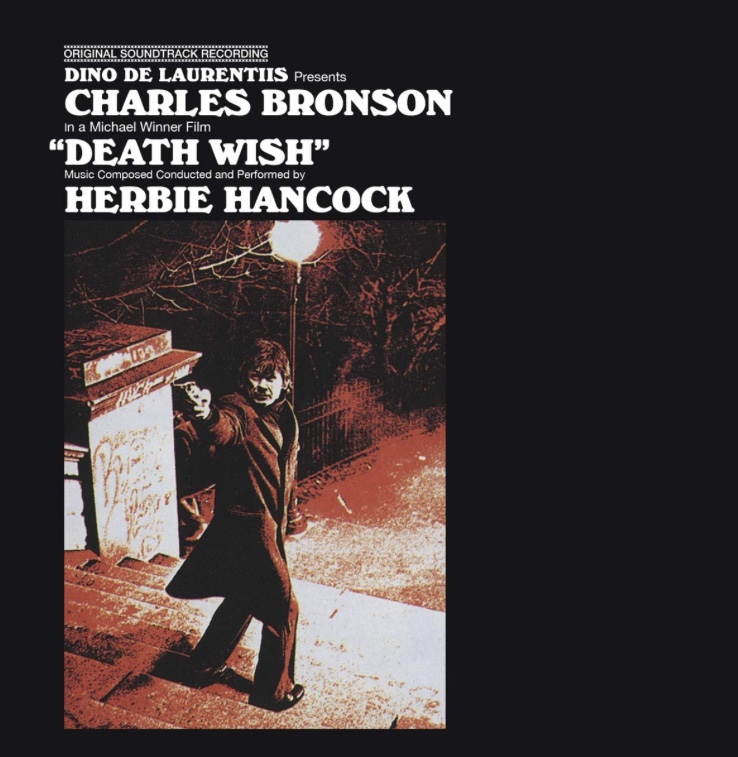
Personally I think it’s actually a pretty well made movie. Obviously made much better by the incredibly groovy music.
The basic idea, plot wise, is as old as the hills. After he is wronged, a man takes the law into his own hands. From Westerns galore, through to Clint and Sly Stallone, even more arthouse stuff, like Ingmar Bergman’s Virgin Spring, it’s a long established plot driver.
It’s possible to think that, without Herbie’s music, this might just be a rather workmanlike entry in that long established tradition. But I’m going to make a case for it being better than that.
Okay, so it is very ‘70s. But in good ways, I’d argue; gritty, urban, grim, yes. But there’s even an element of humour, with Bronson’s Paul Kersey character referencing the Western tradition, which this movie is very definitely a somewhat twisted modern heir to.
This is most obvious when Kersey challenges an assailant to ‘draw’, and again, when he asks Inspector Frank Ochoa (the stand in for the sheriff, played by Vincent Gardenia) if he needs to be out of town ‘by sundown’.
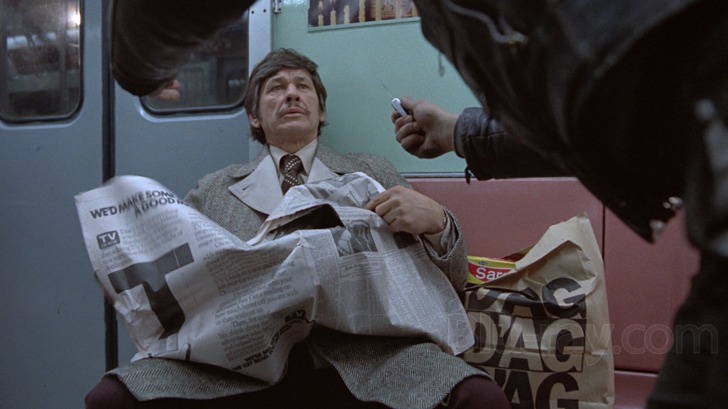
Charles Bronson is great as Kersey, the taciturn former CO (conscientious objector, as opposed to commanding officer) and Korean War medic, who snaps and turns vigilante, when his wife (played by Hope Lange) is murdered, and his daughter sexually assaulted, and left so traumatised she can’t function, in a home invasion mugging turned violent.
The film takes its time, building to the protagonists’ crossing the line. And Bronson’s Kersey is physically sick after his first rather impulsive slaying. Ochoa, ill and overweight, is nonetheless a resolute legal beagle. So the Western tradition and it’s heirs are somewhat subverted, in this grimmer modern urban ‘Wild East‘.

Personally I think this film is much more nuanced than its detractors, at the time of release, realised. Despite his brawny physique Bronson/Kersey isn’t typical leading man material, facially speaking. There’s even a depth to him that makes his role here quite beguiling.
And, as well as the self-deprecating awareness of the clichés it draws upon, there’s an interesting relationship with ideas that have become ever stronger with time, such as the media’s role in such things, and the vigilante as modern urban hero. I like how this idea is somewhat undermined when Kersey passes out, during his final ‘mission’ to clean up the streets of NY, near the end of the film.
Somehow – maybe it’s just chutzpah? – Death Wish walks a tightrope between being grossly clichéd and grittily realistic, in its depiction of contemporary urban grimness. The plot, acting, direction, and music all contribute to making a rather familiar idea quite refreshingly compelling and entertaining.
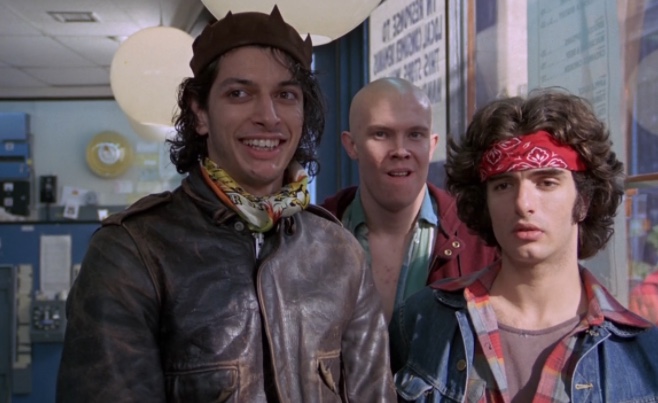
Perhaps the most strikingly dated things (for some another might be the music; but I love it!) are the hippy-bum-ne’erdowells. These are not ‘60s love and peaceniks, but the amoral dregs of a more Last Exit To Brooklyn type lineage.
The home invasion scene, which sets up the rest of the movie, really is nasty. The villains are repulsively trashy and amoral. Jeff Goldblum’s character in particular is an appalling avatar for the idea of modern urban youth as poisoned and toxic beyond redemption.
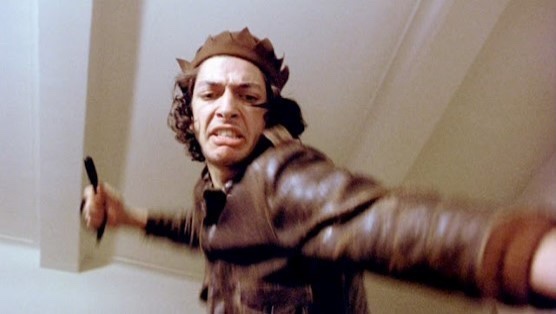
The book was, I’ve read, unequivocally anti-vigilante. The movie is, according to its detractors at the time, not just ambivalent, but unabashedly pro vigilantism. This scenario caused the author of the book to write a sequel, Death Sentence, clarifying or reinforcing the anti-violence message.
The movies meanwhile, would spawn a further series of films – six in all (so far!) – all of which are more blatantly exploitative of the longstanding tradition of retributive violence, as meted out by the lone man pushed too far.
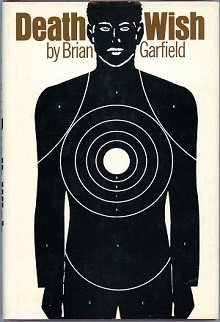
The first three of these are all by Winner, and Bronson reprises his role as Kersey in all but the last, in which Bruce Willis stars (and Eli Roth directs). All of these remakes are, according to most critics, blatant ‘revenge porn‘.
I guess such folk do have a case that even this original film version certainly leans that way. But as critic John DeFore noted, the later iterations make the original ‘look philosophical by comparison’.
All told, a very watchable and – I found – enjoyable movie. The cherry on top? Herbie’s fabulous soundtrack.
